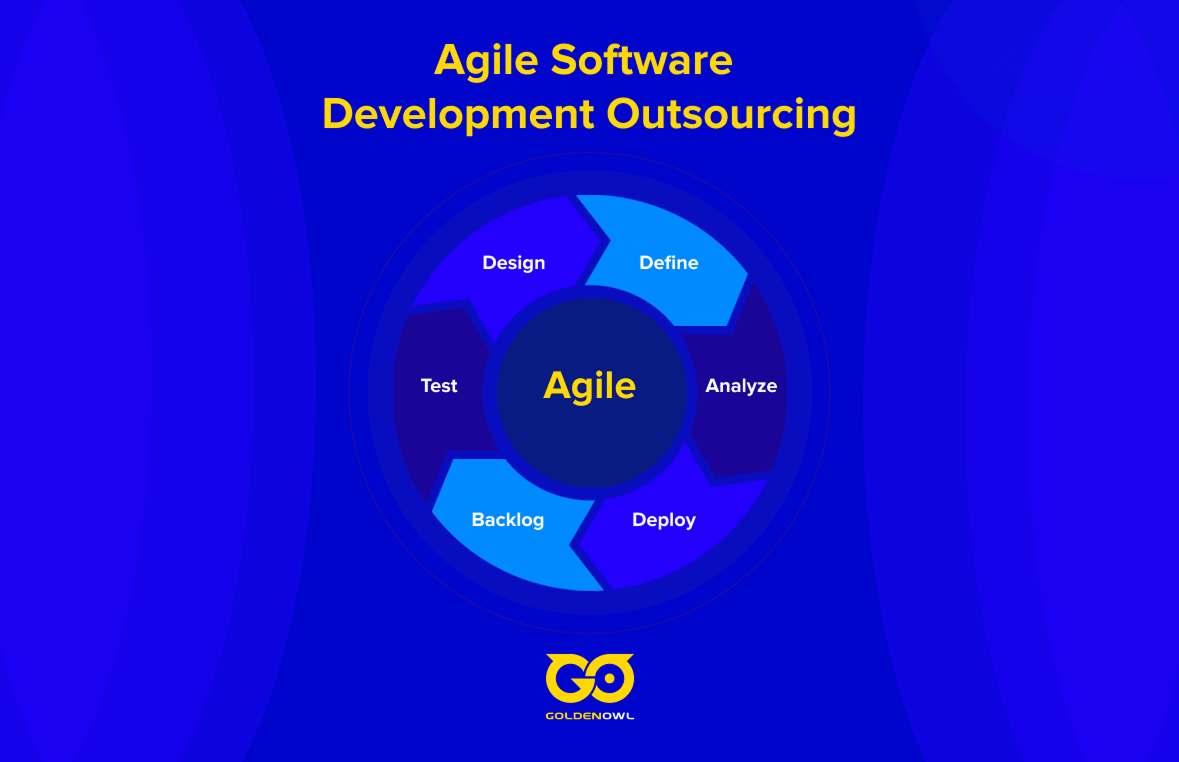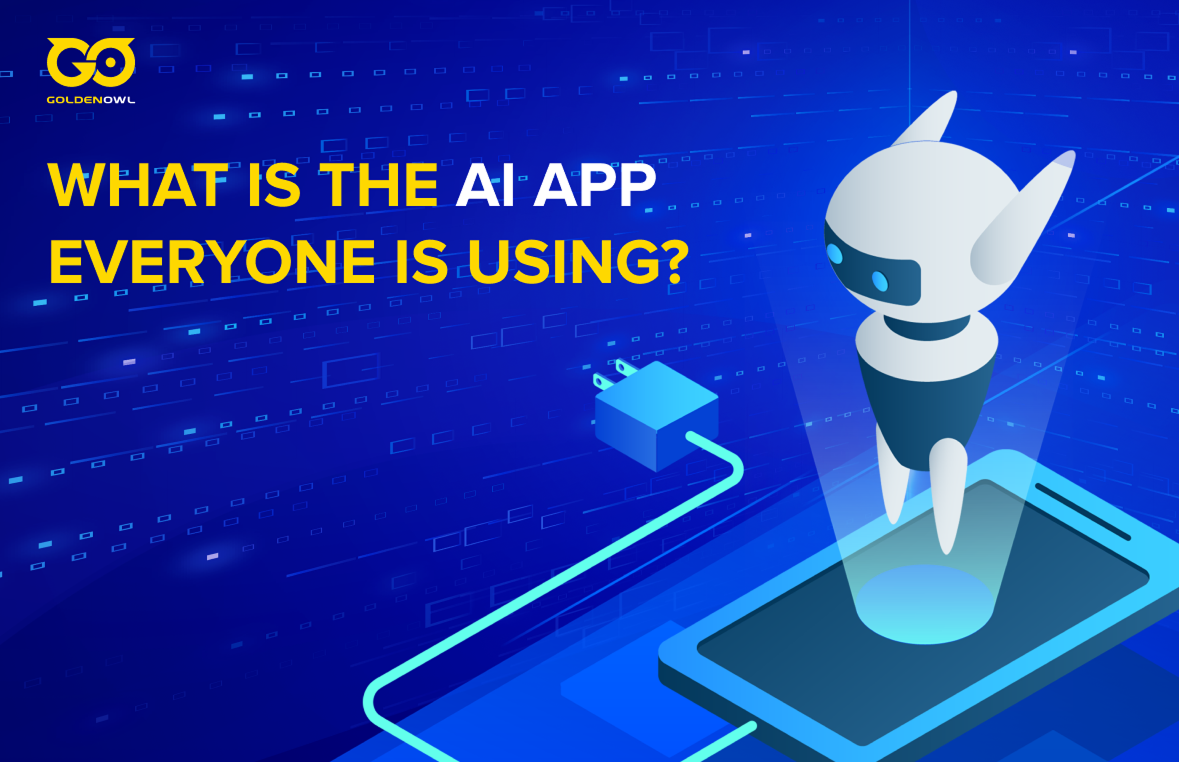From front-end to back-end, discover the world of web development and embark on a journey to become a skilled web developer.
Whether you're a beginner with a curiosity about the field or someone seeking to expand your knowledge, this comprehensive blog post serves as your ultimate guide to answer the question: "What is web development?"
In today's competitive marketplace, web development plays a crucial role for many companies as they showcase their products or services, provide valuable information to customers, facilitate seamless online transactions, and engage with their target audience.
Within this blog post, we will delve deep into the intro to web development covering definitions, key areas of focus, basic principles, and career guidance for those who aspire to venture into this fulfilling realm.
What Is Web Development?
Website development, also known as web development or web dev, encompasses a range of tasks involved in constructing and managing web pages.
Web development extends beyond the scope of web design, which is primarily concerned with crafting visually appealing and interactive user interfaces for websites. It encompasses the technical elements of website development, including tasks such as web page coding, database management, and even certain aspects related to UI/UX design.
Examples of web development work include client-side and server-side scripting, server configuration, CMS (Content Management System) development, and network security implementation. In today's digital landscape, where a large number of people are connected to the internet, businesses recognize the importance of maintaining an online presence.

A website serves as a digital representation of a business, serving as an online platform for showcasing its offerings to a worldwide audience. Through web development, businesses can harness various technical approaches to effectively compete and connect with customers, ultimately leading to the generation of potential leads and customers.
Given the comprehensive nature of web development, it encompasses fundamental concepts, technologies, roles, platforms, frameworks, and programming languages. These components work together to create and maintain functional and visually appealing websites. In the following sections, we will delve deeper into these definitions and explore the specifics of web development.
How To Create A Website?
Building Your Development Team
One of the popular choices among companies nowadays is to build their own infrastructure by assembling a web development team to create and manage websites. To establish a complete team, managers need to grasp some basics of web development.
Website basics cover the fundamental principles and technologies required to construct web applications. Here are some key areas of web development to focus on:
Front-end Development
1.Definition
Front-end development is the process of creating the user-facing part of a web application. It involves designing and developing the visible elements that users directly interact with, including the layout, web design, and functionality of web pages. It's important to differentiate a front-end web developer from a web designer.
Web and digital interface designers focus on the visual aspects and overall aesthetics of the site, using wireframes, prototypes, and graphic editing tools to design the visual elements. On the other hand, front-end developers specialize in translating responsive web design into interactive web pages through coding and programming.

2. Frameworks
Front-end frameworks are pre-designed tools and libraries that offer ready-made components, styling options, and features. Their purpose is to provide developers with a solid foundation and reduce the amount of code they need to write from scratch.
Front-end frameworks are particularly useful for large-scale projects with tight deadlines. They streamline development by providing a structured approach, making code organization and maintenance easier, especially when working on complex web applications with numerous components and functionalities.
However, it's important to carefully consider the suitability of a front-end framework for smaller projects. Using a complex framework with unnecessary components can lead to bloated code and larger file sizes, which can negatively impact performance.
Therefore, developers should assess project complexity, available resources, and time constraints before opting for a front-end framework. Currently, the most popular frameworks are widely adopted by developers and offer extensive community support are:
- AngularJS
- ReactJS
- jQuery
- Vuejs
- Bootstrap
3. Programming Languages:
- HTML (Hypertext Markup Language): HTML is not a programming language but a markup language used for creating the structure and content of web pages. HTML allows web developers to structure the content of a web page by defining headings, arrow key, paragraphs, lists, images, links, tables, forms, and more. It provides a hierarchical structure that helps browsers understand the layout and organization of the content.
Read more: 12 Frontend Programming Languages Every Developer Should Explore
- CSS (Cascading Style Sheets): CSS is a styling language that complements HTML by defining the visual presentation and layout of web pages. It allows developers to control the colors, fonts, spacing, and positioning of elements. While HTML defines the structure and content of a web page, CSS is used to style and visually enhance the HTML elements.
Read more: Discover the Differences Between HTML, CSS, and Javascript

Back-end Development
Below are several commonly employed programming languages that are popular in front-end web development:
1.Definition
In contrast, back-end web development pertains to the server-side tasks involved in managing a website. The back-end components, which users typically don't see, encompass various elements such as servers, web servers, databases, APIs, and website security measures.
Back-end developers utilize languages and frameworks to implement the underlying logic, handle database management, and configure the server. Their work enables the functionality and communication between the front-end and the back-end components.
2. Frameworks
Backend frameworks are software frameworks designed specifically to simplify the web development process of server-side applications and systems. These frameworks empower developers by providing a structured approach and tools to create robust, scalable, and secure web applications more efficiently. By offering a solid foundation, backend frameworks allow developers to focus on delivering high-quality solutions.
Similar to front-end frameworks, backend frameworks are not strictly necessary for building web applications. They are particularly useful during the initial stages of a project, such as prototyping, as they provide a foundation for quickly building functional prototypes and proof-of-concept applications. However, it's important to note that using backend frameworks can introduce complexities when debugging issues.

Debugging problems within the framework's internal code or complex middleware layers may require specialized knowledge and debugging techniques specific to the framework. This means that while backend frameworks save coding time and effort, developers need to invest time in becoming familiar with the framework's concepts, syntax, and best practices if they are not already experienced with it.
Some popular backend frameworks include:
- Django
- Ruby on Rails
- Laravel
- Express
3. Programming Languages
- PHP (Hypertext Preprocessor): PHP is an open-source language developed specifically for web application development, form data handling, database interaction, and dynamic web content generation. It is widely supported by hosting providers, making it a popular choice for shared hosting environments. If you intend to deploy your application on shared hosting servers, PHP ensures compatibility and easy deployment. However, PHP traditionally adheres to a synchronous, single-threaded execution model, which may not be suitable for certain applications that require extensive multi-threading or parallel processing capabilities.
Read more: 7 Benefits Of PHP In Web Development
- C++: C++ is another popular language commonly used in backend development. It is well-suited for building high-performance and resource-intensive applications. With its high efficiency, C++ is ideal for developing backend systems that require demanding computational tasks or real-time processing capabilities. C++ is widely employed for system-level tasks, including operating system development, device drivers, and low-level software components. It provides direct access to hardware and system resources, enabling developers to implement complex functionalities and optimize performance. However, it's important to note that C++ requires manual memory management. Developers are responsible for explicitly allocating and freeing memory, which can be challenging and prone to errors. Mishandling memory management can result in memory leaks or other issues.
- Python: Python is a popular programming language extensively utilized in backend development. It enables developers to focus on problem-solving rather than getting caught up in low-level intricacies. Python stands out for its clean and easily understandable syntax, facilitating efficient code writing and comprehension. This readability promotes maintainability and collaboration among developers, leading to faster development and a reduced likelihood of introducing errors. However, in scenarios that involve performance-sensitive applications or specific language requirements, Python's interpreted nature may lead to slower execution times for certain operations. Additionally, Python's memory consumption can be relatively higher compared to certain other languages. This aspect becomes a concern when dealing with storage details or situations that demand efficient memory management.

- Ruby: Ruby is a dynamic and object-oriented language renowned for its simplicity and efficiency. It is widely appreciated for its productivity-enhancing features. Within the Ruby ecosystem, there exists a highly popular web framework known as Ruby on Rails, which offers a structured and standardized approach for building robust and scalable web applications. With Ruby on Rails, the web developer benefits from a convention-based methodology that minimizes the need for explicit configuration. This convention over the configuration paradigm simplifies the development process by providing default structures and predefined patterns, thereby facilitating better code comprehension and maintenance. However, while Ruby boasts an intuitive and beginner-friendly syntax, becoming proficient in its advanced features and the Ruby on Rails framework may necessitate time and practice. Developers who are new to Ruby may encounter a learning curve before attaining a high level of proficiency.
Read more: Detailed Differences Between Back-end vs. Front-end Development
Full-stack Development
1. Definition
Full-stack development entails the aptitude to tackle both the front-end and back-end components of web development. A full-stack developer exhibits expertise in both front-end and back-end technologies, equipping them with the capability to manage all stages of web development.
This encompasses crafting user interfaces and implementing the server-side infrastructure. With a comprehension of the entire development process, ranging from visual web design to server configuration, the full-stack web developer possesses the autonomy to create comprehensive web applications.
Outlined below are the three primary programming languages that prove immensely valuable for any full-stack web developer:
2. Programming Languages
- JavaScript: JavaScript is a programming language that elevates web pages through the integration of interactivity and functionality. By enabling dynamic content, event handling, DOM manipulation, data retrieval, form validation, and other capabilities, it significantly enhances the user experience. Furthermore, JavaScript extends its utility to back-end development with the aid of Node.js, a runtime environment that facilitates the execution of JavaScript on the server side. JavaScript is widely acknowledged as the predominant language for front-end development, commanding a prominent position in the field.

- Python: As previously discussed, Python is widely utilized in back-end development because of its resilience, developer-friendly syntax, and expansive library and framework ecosystem. While Python is predominantly associated with back-end development, it can also be leveraged for specific front-end responsibilities, such as server-side rendering or the generation of dynamic content. Python provides libraries like React and Vue.js that facilitate front-end development. In summary, Python is generally regarded as more efficient for back-end development in comparison to front-end development.
- Ruby: Similar to Python, Ruby is commonly considered better suited for back-end development rather than front-end development. It is preferred for its simplicity, readability, and expressive characteristics, which contribute to its popularity in building server-side applications. While Ruby is capable of handling certain front-end tasks such as HTML template generation or server-side rendering, it is not as extensively employed for front-end development. Nonetheless, Ruby does provide options for front-end development and can be a suitable choice for specific scenarios.
Read more: Top Programming Languages for Full-Stack Developer in 2023
Create With A Website Builder
In addition to coding your own website, which is somewhat suitable for organizations with existing infrastructure and professional developers, a cheaper and easier option for non-IT developers is to use a web builder.
To use a web builder, you need to be familiar with some popular platforms that help you create your website without web development skills.
Platforms
1.WordPress
WordPress is a widely used and versatile web development platform that empowers a significant portion of websites online. It is a PHP-based open-source platform that enables the creation of various website types, including blogs, business websites, e-commerce stores, portfolios, and more.
With its extensive collection of themes and plugins, WordPress offers a vast array of customization options. Users can personalize the design, functionality, and features of their websites to meet their specific requirements.
WordPress is designed with search engine optimization (SEO) best practices in mind, making it easier for websites to achieve higher rankings in search engine results. This makes WordPress a popular choice among SEO experts who may not possess advanced technical skills.
However, WordPress heavily relies on themes and plugins, which can sometimes lead to slower performance compared to custom-built websites. This is especially true if there are an excessive number of plugins or poorly optimized themes.
Overall, WordPress is the top choice for bloggers, content creators, charity organization websites, and news websites due to its powerful content management system (CMS) capabilities.

2. Wix
Wix is a widely used website builder that operates on the cloud, enabling users to create and customize websites without requiring coding or technical expertise. It offers a user-friendly drag-and-drop interface, a range of pre-designed templates, and various features and tools to help build professional websites.
Wix provides a diverse selection of professionally designed templates that cater to different industries and website types. Additionally, it offers secure and reliable hosting services, allowing users to focus on building and managing their websites without concerns about the underlying infrastructure.
However, one limitation of the platform is its lack of flexibility when it comes to migrating websites. Since Wix ties users to its own platform, transferring a website to a different platform or hosting provider may necessitate rebuilding the site from scratch, which can be a time-consuming process.
Wix is particularly suitable for individuals or small to medium-sized businesses seeking a straightforward, user-friendly, and hassle-free website-building experience. It offers quick setup and launch options, making it an attractive choice for those looking for a convenient website-building solution.
3. Magento
Magento is a feature-rich e-commerce platform that is open-source, allowing businesses to build and manage online stores with flexibility. It offers a comprehensive set of features and functionalities for various aspects of e-commerce, including product management, inventory control, order processing, customer accounts, and marketing strategies.
One of Magento's strengths is its scalability, making it capable of handling large product catalogs, high website traffic, and complex e-commerce requirements. It also allows businesses to manage multiple online stores from a single backend system. However, it's important to note that the Magento Commerce edition, which offers additional features and support, comes with a significant cost.
Magento is particularly suitable for medium to large businesses or enterprises that require a robust and scalable e-commerce platform with advanced features and customization options for managing a substantial product catalog.
While using a website builder might be a more affordable option, Magento requires technical expertise or sufficient resources for initial setup, configuration, and ongoing maintenance due to its complexity.
Read more: How much does it cost to build a website?
4. Shopify
Similar to Magento, Shopify is an e-commerce platform that specializes in creating and managing online stores. However, while Magento is better suited for larger businesses with complex needs, Shopify is an ideal choice for small to medium-sized businesses that prioritize a user-friendly and hosted solution.
Shopify is highly regarded for its intuitive and user-friendly interface, making it accessible to users of all technical skill levels. With its fully hosted nature, Shopify takes care of server infrastructure and software updates, allowing users to focus on their core business activities. It is designed to simplify the process of setting up and managing online stores.
It's important to note that Shopify does charge transaction fees for sales made through third-party payment gateways if users don't utilize Shopify Payments. However, this can be offset by the convenience and ease of use provided by the platform. Overall, Shopify is an excellent choice for small to medium-sized businesses looking for a hassle-free and user-friendly solution to establish their online presence.
Hire A Web Development Agency
If you feel that building a team infrastructure requires too much time and cost investment, and using a website builder doesn't meet your requirements for customization and scalability, then hiring a web development company is the optimal choice.
Read more: Top 12 Leading Website Development Agencies in Southeast Asia
Here are some advantages of enlisting the services of a web development company:
- Time and Cost Efficiency: Web development agencies have streamlined processes, tools, and resources that enable them to efficiently handle projects. They can deliver results within specified timelines and budgets, saving you the time and effort required to build and manage an in-house team.
- Tailored Solutions: Web development agencies collaborate closely with clients to grasp their specific requirements and objectives. They customize their services to meet your unique needs, ensuring that the end product aligns with your business goals and resonates with your target audience.
Read more: 7 Advantages of Custom Website Design for Businesses
- Ongoing Support and Maintenance: Web development agencies provide ongoing support and maintenance for your website. They take care of updates, security patches, and troubleshooting, ensuring that your website operates smoothly and remains secure. This allows you to focus on your core business activities while entrusting the technical aspects to the expertise of professionals.

However, there are also considerations to bear in mind before making a choice:
- Cost: Hiring a web development company can be costly, particularly for small businesses or individuals with limited budgets.
- Communication Challenges: Collaboration with a web development company may present communication hurdles, especially if there are language or cultural differences, varying time zones, or if the company has a large client base and limited availability for direct communication.
Read more: How to hire a web development agency?
Golden Owl Consulting is a renowned IT outsourcing company that operates in multiple countries, including the UK, Singapore, Vietnam, Australia, the US, and Norway. As a leading web development service, we serve all your IT needs.
At Golden Owl, our front-end developers utilize state-of-the-art technologies such as Ruby on Rails, JavaScript, and React to craft captivating user interfaces that engage and captivate your website visitors.
We employ advanced development practices like cloud automation, blockchain, and artificial intelligence to ensure the highest level of innovation and user experience. On the other hand, our back-end developers leverage their extensive knowledge in various programming languages and platforms to ensure the seamless operation of your website's infrastructure.
From the initial consultation to the final website launch and ongoing support, our custom website developers are fully committed to providing excellence in every aspect of our service.

Web Developer Career Path: Frequently Asked Questions
What Does A Web Developer Do?
As previously discussed, a web developer can specialize in different areas such as front-end, back-end, or full-stack development, depending on the requirements of each company. They work together to create web applications that are dynamic, interactive, and able to handle user input while providing personalized experiences.
Furthermore, the web developer plays a crucial role in conducting comprehensive testing of websites and web applications to ensure that they function correctly across different browsers, devices, and operating systems. This ensures optimal performance and compatibility for a wide range of users.
Read more: Automation Testing: A Comprehensive Guide For Business Success
Is Web Development A Good Career?
Yes, there is a strong demand for web developers, as well as IT professionals in general, leading to lucrative salary prospects. The field of web development is constantly evolving, offering individuals the chance to expand their knowledge and adapt to new frameworks, languages, and tools. Continuously learning and staying updated not only keeps you abreast of the latest developments in a rapidly changing industry but also adds value to your professional profile.

How Long Does It Take To Become A Web Developer?
The time required to become a web programmer can vary depending on several factors. Typically, individuals coming from non-IT backgrounds may need several months to establish a strong foundation in web development, including key concepts like HTML, CSS, and JavaScript.
For those pursuing a career as a front-end or back-end web developer, once they have achieved proficiency in the fundamentals, it is essential for candidates to research the specific job market demands in their respective countries. A valuable recommendation is to start learning popular languages, such as JavaScript or Python, which are suitable for full-stack development. This will help enhance their employment opportunities in the field.
Conclusion
In conclusion, web development is a dynamic and essential field that powers the digital world we live in today. Throughout this blog post, we have explored the fundamental aspects of web development, including its definitions, key areas of focus, and career prospects to become a web developer.
Web development is not just about writing code—it's about creating impactful and user-centric experiences that shape the digital landscape. So, seize the opportunities, explore your creativity, and make your mark in the exciting world of web development.























